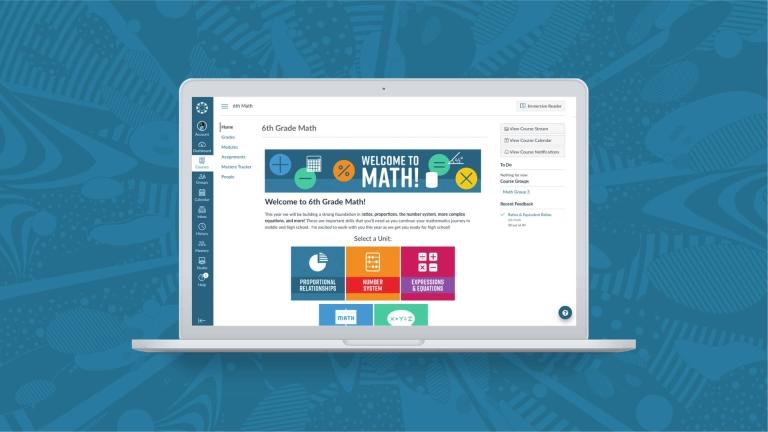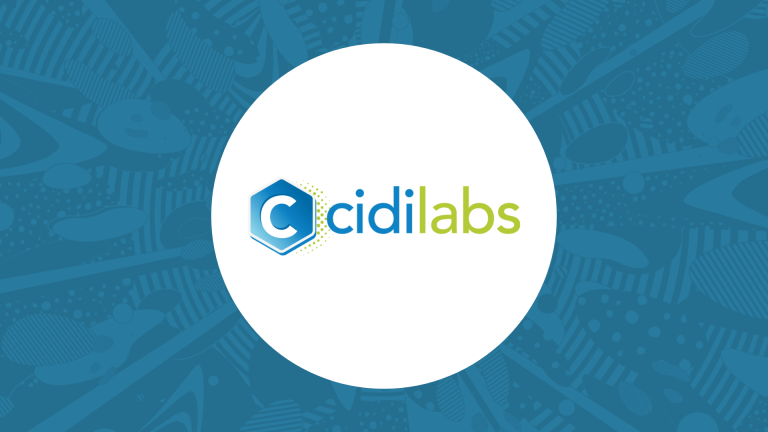![We can see their usage, but we want to know [which education tools] teachers feel are helpful in their environment.](/sites/default/files/styles/medium/public/image/2023-06/User%20Group%20Recap.png?itok=_3svfNBb)
Thousands of edtech tools are available, and the right ones can significantly impact teaching and learning. However, with so many options, it can take time to identify which tools work best for your teachers and students. That’s why holistic, evidence-based edtech management is imperative for district leaders to ensure that the tools used positively impact student outcomes.
What is Evidence-Based Edtech Management?
It may be helpful to take one step back. When we say edtech management, we’re talking about evaluating your school’s edtech tools. It includes taking a complete inventory of the tools being used:
- By teachers
- By students
- By administrators
However, it’s more than simply knowing which edtech tools you have. It’s also important to understand why you have them. It also involves justifying your investment in edtech. When schools often decide to purchase a tool, there’s a why involved. - Help students perform better on assessments.
- Help students collaborate from anywhere.
- Make lesson planning more manageable for teachers.
- Streamline communication between teachers, students, and parents.
- Help students engage with the material.
- Help teachers and students connect outside of the classroom.
The list goes on and varies by school.
As time progresses, it’s essential to return to your why, as with any other investment. Are the tools you’ve invested money and resources into getting you the results you wanted?
That’s where analyzing the evidence comes in.
Schools need to make use of the data they have at their disposal. This data can serve as crucial evidence to help you understand the ROI of your edtech ecosystem.
Several types of data can be valuable evidence when evaluating edtech:
- Tool usage data
- Financial cost & budget allocation
- Learning outcomes data such as standardized test scores, grades, and assessments
- And more
This evaluation and management is more than just a one-and-done task. It’s an ongoing process that every school and district should conduct regularly to ensure they’re creating a healthy edtech environment in which their community can thrive.
What are Districts Today Saying about EdTech Management?
LearnPlatform by Instructure hosted a series of virtual user group sessions, bringing together forward-thinking administrators from districts across the United States to discuss how they’re going about edtech management. These leaders shared successful strategies for edtech request and vetting processes, ongoing evaluation, and gaining teacher buy-in. They also offered insights on leveraging LearnPlatform for transparent communication, process automation, and outcome analysis, ultimately driving more purposeful dialogue around their edtech resources.
Here are three key takeaways from these user group discussions, along with actionable tips from eight presenters:
Use your district’s edtech product library as a single source of truth
Andy Fekete, Instructional Technology Specialist at Indian Prairie CUSD in suburban Chicago, Illinois, discussed how teachers constantly seek new tools to support classroom learning. This reality certainly benefits students but often inundates technology admins with requests. Mr. Fekete has benefitted from centralizing processes and communication within LearnPlatform, allowing teachers to know where to go and reducing manual work for his team.
Sarah Knight, Instructional Technology Specialist at Nixa Public Schools in Southwestern Missouri, pointed out that it’s easy to see the value of a centralized library of edtech tools for teachers. Still, that library needs to be easy to navigate. She leverages customizable lists, tags, and pins in the LearnPlatform District Library to emphasize and support district initiatives. This approach preserves teachers’ limited time by making it quick and easy to navigate the library to find approved tools that fit their use cases.
“Tags, lists, and pins are all great, simple, and easy ways to efficiently communicate with teachers, provide transparency, and really curate your LearnPlatform library to how you want it to support teachers.”
Sarah Knight, Nixa Public Schools
Micah Miner, District Instructional Technology and Social Studies Coordinator at Maywood-Melrose Park-Broadview School District just outside Chicago, Illinois, leverages the LearnPlatform District Library to support equitable access to academic resources for his highly diverse and underserved student population. His educators' tools must reflect their students, encourage broad worldviews, and expand access to opportunity. With custom tagging, educators can more easily identify tools with the unique characteristics needed to serve their students, supporting meaningful instructional practices and facilitating more purposeful dialogue around equitable digital resources.
“We want mirrors, windows, and doorways in our curriculum…With that, it's really important that teachers are able to understand what's being used in your district and what the prioritized tools [that have been vetted for that equitable content] are."
Micah Miner, Maywood, Melrose Park, Broadview School District
Institute effective edtech product requests & vetting processes
Lindsey Evans, Lead Digital Teaching and Learning Specialist at New Hanover County Schools on the south coast of North Carolina, uses a committee-based approach for vetting to consider all perspectives. This approach helps bring all stakeholders within the district to the table–not just technology but Curriculum & Instruction. Ms. Evans and her team also use product vetting rubrics for a consistent, transparent review process. The team uses LearnPlatform to facilitate these processes, and she has prioritized training building administrators and teachers so they understand the approach, buy-in, and fully utilize the system.
Chad Fisher, Instructional Technology Coach at Frederick County Public Schools in northwestern Virginia, discussed the growing emphasis on vetting edtech tools for data privacy in light of SOPPA and expanding state-specific legislation. As edtech proliferates, educators are being required to operate within numerous guidelines, with still ambiguous consequences. At the same time, a growing number of edtech tools originating outside the U.S. are being requested and used by teachers, with widely varying privacy policies and terms of service that may or may not address U.S. legislation. Districts must determine (and regularly re-evaluate) their data privacy approaches and closely evaluate requested tools for adherence. Whenever possible, schools should build compliant data privacy practices into vendor contracts.
Erica Santamaria, Applications Technical Specialist at Kent School District in greater Seattle, Washington, understands that edtech tool approval needs to be an ongoing process that evolves along with policy, district tech infrastructure, changing student needs, and district initiatives. She is working to establish a cadence for product re-review to keep Kent’s district library in LearnPlatform up-to-date. Leveraging custom tags in LearnPlatform to trigger workflows based on contract end-dates (single-year or multi-year) will help automate and streamline the process.
Leverage available evidence to drive decision-making
Dr. Dennis Lane, Instructional Technology Administrator for Oregon Trail School District in the Cascade Mountains of Oregon, recognizes that teacher feedback is crucial when trying to understand which edtech tools are most effective. Dr. Lane gamifies the process using a ‘March Madness’ format to encourage teacher participation. To run his ' tournament, he’ll leverage LearnPlatform’s customizable teacher feedback request workflows this year.’
"We’re trying to find a fun, engaging, and interactive way to find out what teachers want and like in comparison to the Inventory dashboard data–we can see their usage, but we want to know [which education tools] teachers feel are helpful in their environment.”
Dennis Lane, Oregon Trail School District
Cindy Free, Director of School Improvement at White County Schools in northeastern Georgia, knows that getting a high-level view of all the tools being used in your district is a great starting point. Still, it’s critical to hone in on specific tools to understand how they impact student outcomes. Ms. Free’s team leverages rapid-cycle evaluation (RCE) through LearnPlatform as one crucial data point to inform conversations around student achievement and edtech investment. She focuses RCE efforts on those tools for the district, dedicating significant budget dollars to those students who spend large amounts of time in them.
"Our ultimate goal is to be able to look at trends and longitudinal data, not to make decisions on single rapid-cycle evaluation results. Hopefully, after doing this several times, with different kinds of student performance data, we may see trends to [allow us to] make good decisions.”
Cindy Free, White County Schools, GA
Thoughtful, evidence-driven management is the key to sustaining an edtech ecosystem that is healthy and high-functioning. While every district's journey is unique, these leaders’ insights demonstrate that all educators’ goals are the same–to deliver transparent, easily searchable access to edtech resources that positively impact student outcomes while saving teachers time, supporting equity, and maintaining compliance.
To learn more about how to build and maintain an effective edtech ecosystem, dive into your district’s free guide here.
Related Content
 Teaching-With-Tech-10-Benefits.jpg
Teaching-With-Tech-10-Benefits.jpgBlogs
 cidilabs.png
cidilabs.pngBlogs
 canvas_x_tg_logo_lockup_780_x_520.png
canvas_x_tg_logo_lockup_780_x_520.pngBlogs
